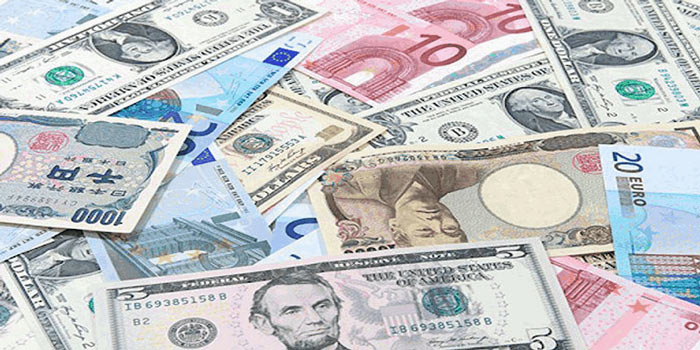The maximum Loan amount acts as a cap established by the lender to prevent borrowers from exceeding a certain limit. Several variables, including the kind of loan, the borrower's creditworthiness, income level, collateral, and the lender's rules, affect the precise maximum loan amount.
The maximum loan amount for personal loans often relies on the borrower's income and credit rating. The borrower's debt-to-income ratio, employment security, and credit history are all considered by lenders when determining the borrower's capacity to repay the loan. These elements aid lenders in assessing the risk associated with extending credit to a certain borrower.
The maximum borrowing amount for business loans might vary greatly. It relies on the kind and size of the company, its financial performance, the loan's purpose, and the lending institution's policies. Small businesses might benefit from government-backed financing programs with predetermined maximum quantities. When deciding the maximum loan amount, lenders may also consider the company's income, cash flow, collateral, and general creditworthiness.
Lenders set maximum loan amounts for mortgages, loans created especially for residential transactions. Regulatory agencies like Fannie Mae and Freddie Mac, which are entities supported by the government, commonly apply these restrictions.
While there are maximum loan limits, it's crucial to remember that lenders do not require borrowers to borrow up to those limits. Depending on their requirements and payback capacity, they may borrow less money.
Individuals or organizations should speak with prospective lenders, who will assess their financial status and offer information on the loan limitations to determine the maximum loan amount accessible to them. Working with a reputable lender and maintaining a strong credit history increases the likelihood of obtaining larger loans with advantageous conditions.
Maximum Limit of Loan Amount:
Firstly, we need to know the loan limit or size. The biggest amount of money a lender is prepared to loan to a borrower is the maximum limit of a loan amount. Several factors determine the maximum loan amount, including the borrower's creditworthiness, income, loan type, and collateral.
Lenders also consider the borrower's credit record, credit rating, and monetary security when determining the borrower's trustworthiness. A higher credit score and a positive credit history indicate a lower risk for the lender, potentially resulting in a higher maximum loan amount. Additionally, a borrower is more likely to get approved for a larger loan if they have an ongoing salary and a low debt ratio to income.

The type of lending affects the maximum amount of loans as well. Depending on their use, various loan products have various constraints. Different maximum amounts, for instance, may apply to personal, mortgage, and corporate loans.
The maximum loan amount may also be impacted by collateral if requested by the lender. As extra security for the lender, the value and kind of collateral may influence the maximum loan amount.
Several variables affect the maximum loan amount, including creditworthiness, income, loan type, and collateral. Borrowers may improve their chances of getting bigger loans with better terms by keeping a good credit history, engaging with trustworthy lenders, and meeting relevant standards.
Types of Loan Amount
Depending on their unique demands and financial situation, borrowers can access various loan amounts. Common loan amounts include the following:
Personal Loan Amount:
Lenders offer personal mortgages as unsecured funds that borrowers can use for various purposes, such as debt relief, home renovations, or unforeseen costs. Depending on the borrower's creditworthiness and income, the loan amount for personal loans often varies from a few thousand to tens of thousands.
Mortgage Loan Amount:
Borrowers use mortgage loans to fund real estate acquisition, including homes. The mortgage loan size depends on the property's valuation, the lender's income, history of credit, and the amount of the deposit made. Mortgage loan amounts can vary greatly from very small sums to hundreds of thousands or even millions of dollars.

Business Loan Amount:
Business loans offer financing for activities such as launching a new company, expanding operations, or purchasing equipment essential for running a business. The loan amount for business loans is based on several elements, including the nature of the firm, income, profitability, and creditworthiness. The loan amounts given to small enterprises range from a few thousand dollars to a few million dollars.
Auto Loan Amount:
The cost of buying a car is financed through auto loans. The vehicle's cost determines a car loan's loan amount, the borrower's credit history, income, and down payment.
Student Loan Amount:
Student loans specifically cover living costs, textbooks, and other educational expenditures. The cost of school, the type of degree, and the student's financial necessity all affect the loan amount of student loans.
FAQs:
Q: Does the maximum loan amount vary between lenders?
A: Certain lenders have varied underwriting standards and lending practices, which might lead to differing maximum loan amounts.
Q: Do you need a home warranty?
A: The necessity of a house warranty is a matter of opinion and contextual factors. By paying for specific home systems and appliances' maintenance or replacement expenses, house warranties may provide homeowners peace of mind. They might benefit homeowners who want more security and wish to save money for unforeseen repairs.
Q: What is a home warranty? Is a home warranty worth it?
A: A house warranty is a service contract that pays for repairing or substituting significant goods and residential systems. It often has a fixed price and a predetermined time limit, typically one year. Depending on the specifics, such as the age of the house, the state of the systems and appliances, and individual preferences for financial security and peace of mind, a home warranty may or may not be worthwhile.
Q: Can the maximum loan amount change over time?
A: The maximum loan amount may fluctuate over time owing to variables such as modifications to the borrower's financial status, changes in the lender's policy, etc.
Conclusion
Lenders are willing to loan the borrower the biggest amount, the maximum. Creditworthiness, income, loan type, and collateral are some variables that affect it. Borrowers may improve their chances of getting bigger loans with better terms by keeping a good credit history, engaging with trustworthy lenders, and meeting relevant standards.
Consumers should evaluate offers from different lenders to get the finest conditions that meet their demands because maximum loan limits might vary. Understanding the maximum loan amount ultimately enables people and organizations to get the funding required to achieve their financial objectives and make wise borrowing selections.




